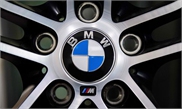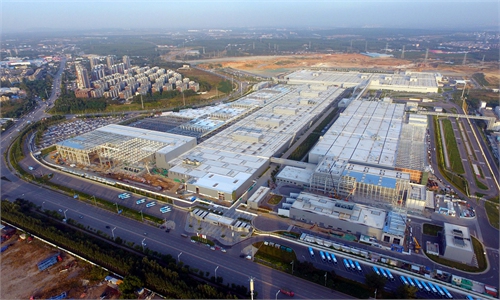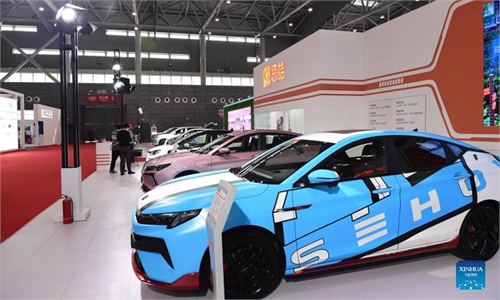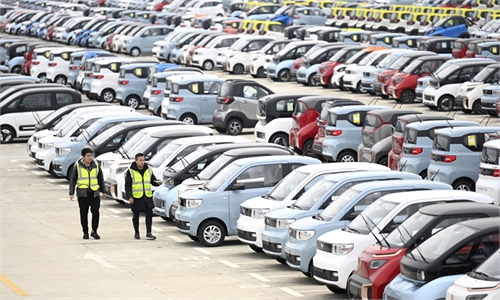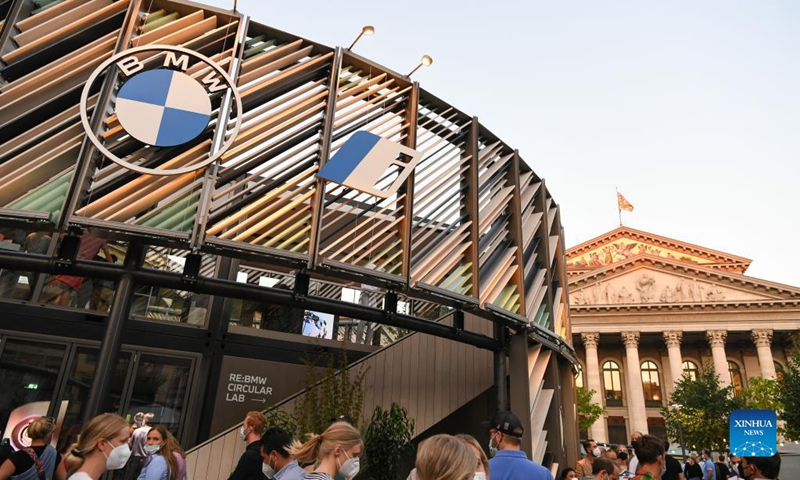
People visit the BMW outdoor booth during the International Motor Show Germany (IAA Mobility) in Munich, Germany, Sept. 8, 2021. Photo: Xinhua
German carmaker BMW said that it uses the "Silk Road" via Belarus and Russia to China, according to a statement from BMW sent to the Global Times on Wednesday.
Foreign media reported that automakers, including BMW and Volkswagen, have suspended shipments by train to China - the world's largest car market - due to the Ukraine crisis, and are transporting vehicles by sea.
"Our current transport route for vehicles to China is: from the European plants by train to Bremerhaven, from there by ship to China. So far, we've also used the 'Silk Road' via Belarus and Russia to China," read the BMW statement.
But the statement does not clarify whether the "Silk Road" refers to the rail route and what kinds of products were shipped that way.
Bremerhaven is a port city in northern Germany. BMW's European plants are less than 10 hours by road from Bremerhaven.
Immediately after the beginning of the conflict in Ukraine, Audi proactively suspended rail transport to and from China via Russia with the Trans-Siberian Railway, according to a statement from VW Group sent to the Global Times on Wednesday.
Audi also said its vehicle and material shipments have been handled both by sea freight and by truck via the so-called southern route via Romania.
"We are currently examining whether transport by rail via the southern route will also be possible in the near future," read the statement.
In 2021, BMW Group delivered 2.521 million vehicles globally. BMW sold 846,237 vehicles in China in 2021, up 8.9 percent year-on-year, which means that China accounted for 33.5 percent of BMW's global market.
BMW has a joint-venture plant in Shenyang, Northeast China's Liaoning Province, which is BMW group's largest production base in the world.
Audi delivered 726,288 cars in China last year, accounting for 43 percent of its global deliveries of 1.68 million cars.
Global Times
